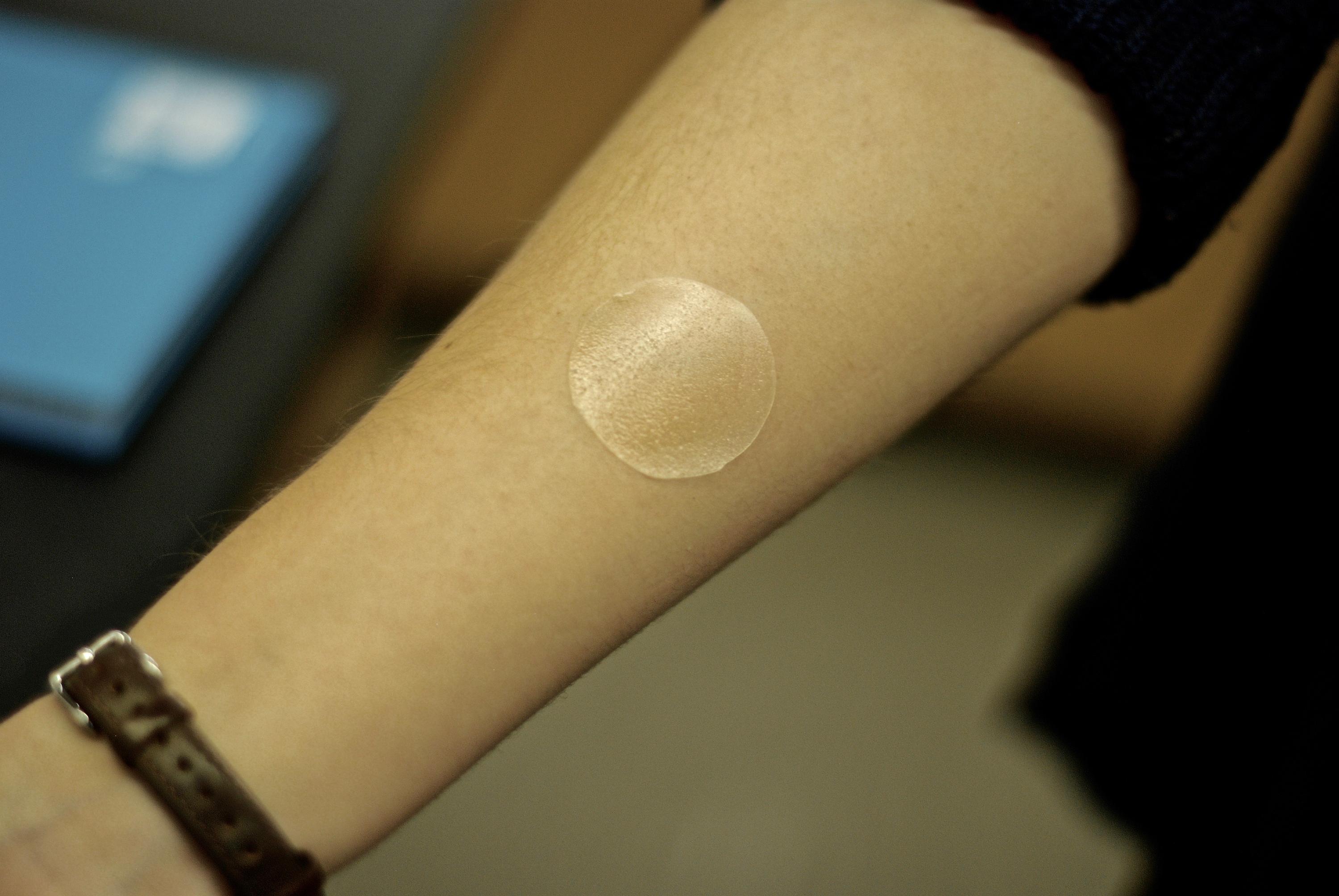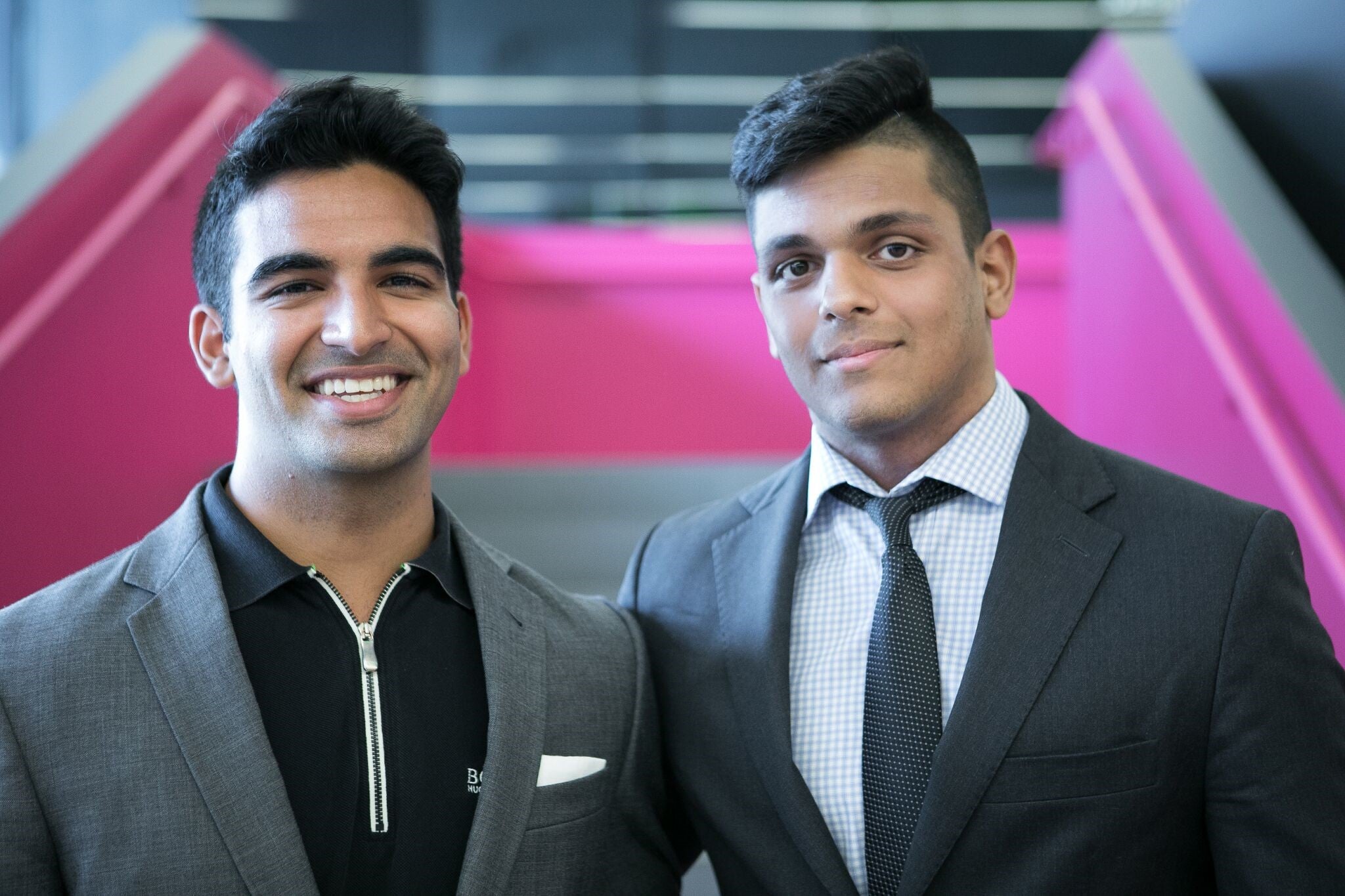A patch that delivers allergy medication to children developed by Waterloo students is one of only two Canadian projects to be shortlisted for this year’s international James Dyson Awards competition. It’s the fourth year in a row a University of Waterloo project has reached the final round.
Avro Life Science, co-founded by Shakir Lakhani, a second-year nanotechnology engineering student, and Keean Sarani, a third-year

“We're happy to represent the University and Canada on the international stage as some of our mentors have done in the past,” says Sarani. “It's also immensely gratifying to see that the team at the Dyson Foundation identifies with our mission of making drug delivery better and life easier for children everywhere.”
Personally inspired
Lakhani and Sarani’s design inspiration comes from having personally struggled with seasonal and food allergies since they were young and wanting to make medicating children easier for both kids and adults.

Avro Life Science, now part of Velocity Science, won $25K in last December’s Velocity Fund Finals for the startup’s solution to provide an alternative form of allergy medication to children without the hassle of pills and syrups.
"It's crazy when I think back on how Avro started,” says Lakhani above right. “We set out to solve a problem while we were barely halfway through our first year at Waterloo and somehow we ended up where we are today.”
Lakhani says it’s been an exciting process to take the Avro patch from a simple concept to a functioning prototype.
“We'll be continuing our R&D and raising the bar even higher in the future,” he adds. “The award really shows that age and years in school should never be a limiting factor and, more importantly, that hard work and dedication can turn a dream into reality.”
Continuing to lead the way
Since 2014, Waterloo student projects have figured prominently in the contest started by James Dyson, the British inventor of the bagless Dyson vacuum cleaner. Last year, Medella Health won first place in the national competition and was shortlisted for the international award.
In 2015, Voltera won first-place overall with its desktop sized circuit board printer that turns design files into prototype boards in minutes. In 2014, Suncayr was an international runner up with its colour changing marker that alerts a user when sunscreen is no longer providing protection.
Open to university students and recent graduates, the James Dyson Award program encourages and rewards innovative products or concepts that do a better job of solving tangible problems.
This year’s shortlist of 20 announced September 27 was whittled down from more than 1000 entries representing 23 countries. The other Canadian team still in the running is from McMaster University. The international winner will be announced on October 26.